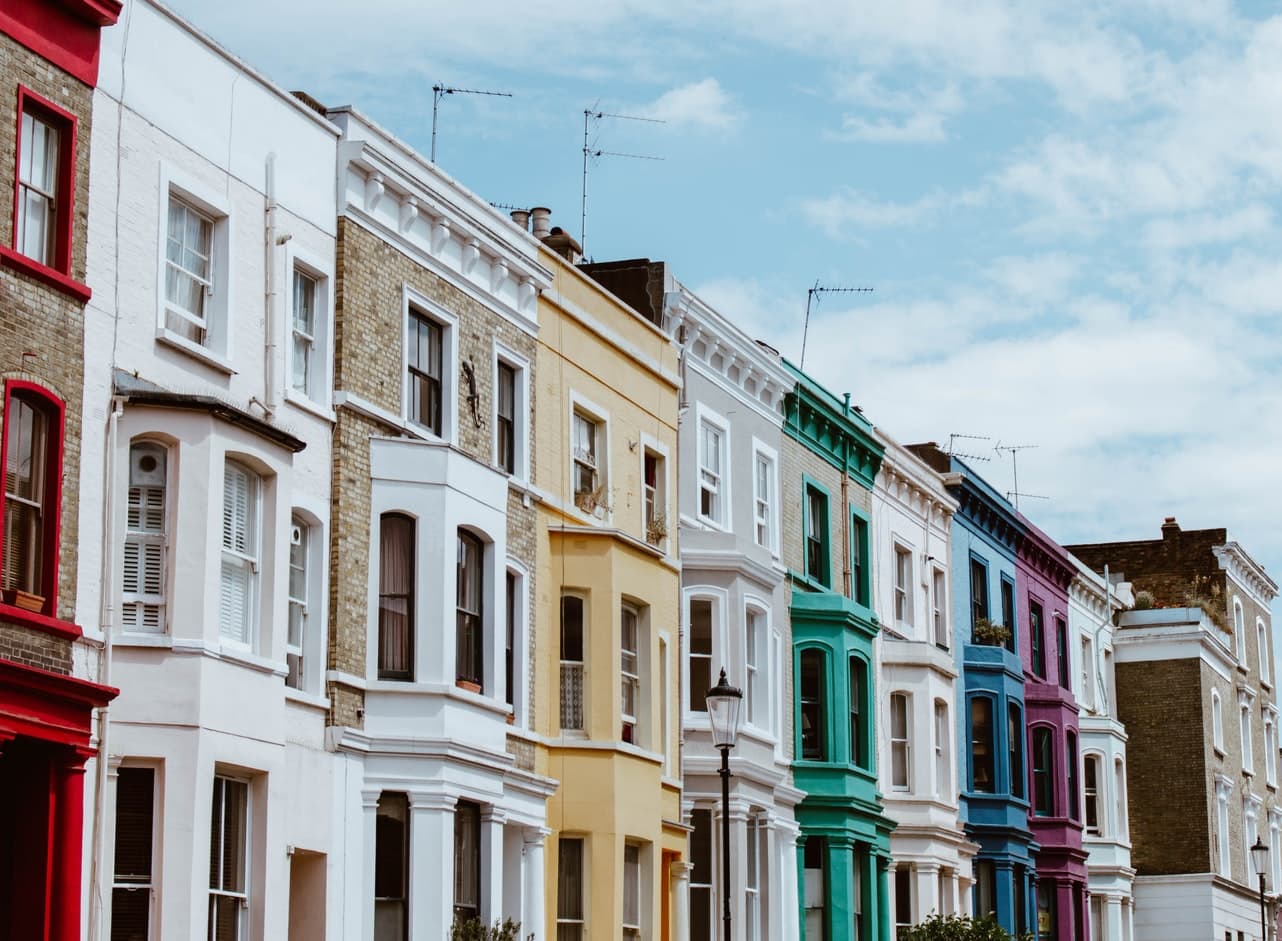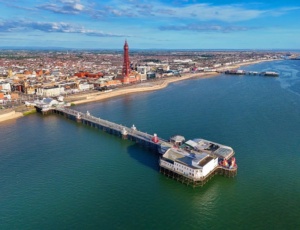Renting and need advice? Read our new Q&A here
Since lockdown began, renters up and down the UK have been asking us for advice.
We’ve had questions on a variety of things, from how much coronavirus has impacted the housing market, to what to do if a landlord is asking for their property back during lockdown.
To help answer some of these questions, we invited three experts to sit on a live Q&A session with us to field your questions.
Our guests included David Cox, CEO of ARLA (Association of Residential Lettings Agents), who is in close contact with the government, and a specialist in all things related to lettings legislation, including the government’s most recent guidance to tenants and landlords.
We were also joined by Tom Kite, partner at Comfort Lettings, an established lettings business based in Nottingham, and Daniel Barea, Rightmove’s data analyst and market expert.
There were limited spaces available on the live webinar, so scroll down for some of the key questions that were answered. If you’d like to watch a recording of the session, you can find it here.
Important: Things are moving quickly these days, sometimes on a daily basis, so please visit our dedicated hub for more information.
Are people still looking for rental property at the moment, in spite of the lockdown?
Search activity has slowed down considerably, and this is to be expected in the current circumstances, but in spite of everything going on, there are still millions of searches happening on Rightmove, and thousands of enquiries about rental properties being sent through.
Broadly speaking, renters fall into two groups: those who will move when the time and circumstances are right, and those who have little choice and absolutely have to move after lockdown – this could be for a number of reasons – relocation, change of personal circumstances, births, etc. These are probably the people who we’re seeing on Rightmove at the moment, enquiring about rental property.
Are lettings agents keeping properties on the market?
For the most part, yes. When we look at the weeks just after lockdown and compare them to the ones just before, there is a drop of 4% in available properties, so not hugely significant. The biggest drop is in new properties coming to market.
Do we expect to see a lot of new rental properties coming to market after lockdown?
In the same way that many tenants have hit pause on their plans to move, there are also landlords and agents who have paused their plans to bring properties to market. There would have also been tenants who were due to leave (making a property available), who have had to extend their stay. So yes, it’s very likely that as soon as restrictions are lifted, and agents have had some time to do valuations, that we will see a spike of new properties coming to market.
READ MORE: What should I do if I can’t pay my rent?
And that’s a good thing because we’re also expecting a spike in demand from tenants looking for properties during that time.
Will this have an impact on prices?
Normally prices are determined by supply and demand, so an increase in either stock or demand would typically impact prices. But if demand is increased proportionally to supply, then it could be that we may not see much difference to asking rents. But that remains to be seen.
So far, there has been little impact on rental prices. Prices today are only 1% lower than the same period last year. We suspect that prices will remain stable as it seems demand and supply could increase in similar proportions.
How are agents dealing with enquiries about rental properties?
Viewings in person have stopped altogether, in accordance with government guidance. But many agents are still providing virtual appointments as an alternative. They are still having conversations with tenants, and are helping them get things in order for life after lockdown.
Agents are finding ways of making things work. And apart from physical viewings, pretty much everything else can be done remotely nowadays, including drawing up tenancy agreements, referencing, document signing, and identity checks. Some agents might be closing shop altogether, but most are still able to find ways to assist their customers.
Also, the government has relaxed certain rules to make things easier for us all. For example, Right to Rent checks, which normally have to be done in person, with hard copies of documents, can now be done remotely.
What are the guidelines around moving at the moment?
The government has issued clear guidance to landlords and tenants in a 21-page document which states clearly that unless it is essential, you should not be moving home during lockdown. That does not necessarily mean ‘stop and cancel all your plans’, though. If you are or were making plans to move, the recommendation is to hit pause rather than cancel.
So if you’re in house B, and you need to get to house C, there may be people in house C waiting to get into house D. And then there will be people in house A waiting to get into your house, so don’t cancel that chain. Just hit pause.
What makes a move essential?
The guidance pretty much says you should not move unless there is absolutely no option, or if there is risk of loss of life or limb. If your roof has caved in or you haven’t got any hot water or heating, or you’ve got burst pipes, or if the property is otherwise uninhabitable, that would make a move essential. Or in cases of domestic violence, for example.
READ MORE: Homeowners research and agents go virtual during market pause
What you can do now is get everything in place to be ready to move after lockdown. You can go as far as to sign contracts and do everything else and agree on a move-in date right after lockdown. But for now, please stay put and avoid moving if at all possible.
My landlord wants me out of the property during lockdown. Can they make me leave?
The simple answer to that is no, they can’t make you leave. On the 26th March the government passed the Coronavirus Act, which among other things, created the lockdown and restriction of movements. It also banned evictions.
Normally, depending on the circumstances, you would have between 14 days’ and two months’ notice before the landlord can begin court proceedings to evict you. Now, no matter what type of tenancy you’re on, or what type of notice is served, or for what reason, all these notice periods are extended for three months, meaning that if you were served an eviction notice, the landlord would have to wait at least three months before taking it to court to be enforced.
What if I was served notice before the 26th March?
All court proceedings of this kind have been placed on hold for 90 days.
Do I still have to pay rent during lockdown?
It’s important to realise that none of the above means that you can stop paying rent. You are still contractually obliged to carry out all aspects of your tenancy agreement, which includes paying the rent.
There has been some confusion around the concept of mortgage ‘holidays’, and that somehow these make mortgages or rents go away for a few months, but they don’t. These only mean that payments can be deferred, which means that they are being pushed back for a short time, but will still need to be paid. These costs will be accruing and will need to be settled.
And even so, these ‘holidays’ are only available in cases that meet certain requirements, and these may vary from lender to lender.
What options are there for people who may be struggling to pay the rent?
It’s important that people know what they are entitled to, where to go, what to do and what their rights are if they are struggling financially. The government’s website is a good place to start. Or your local Citizen’s Advice Bureau, or Council.
The government has provided a safety net for those having financial difficulties, and is being quite generous to those applying for Universal Credit and other financial help. Your local authority may be able to help you.
We would encourage anyone who is faced with any of these struggles to get in touch with their landlord or letting agent as early as possible. The sooner a discussion can be had, the sooner measures can be put in place to help support them.
What happens to those people whose rental contracts are coming to an end during lockdown?
They should do everything they can to stay put. Speak to your landlord or agent and either ask for an extension of the contract or enter a periodic agreement (known as monthly rolling contract) until further notice. In most cases, landlords will be interested in extending contracts, as during this time they may struggle to find new tenants, and a vacant property is not in their interest.
What if the landlord does not want to extend the contract or enter a rolling contract because they need the property back?
Entering a rolling contract should be automatic, unless otherwise agreed by both parties. In most cases you don’t need to decide to enter this agreement as it will happen automatically.
READ MORE: Can I let tradespeople into my home during lockdown?
In cases in which the landlord would want the property back, they would have to either enter an agreement with you as a tenant, or initiate proceedings to evict, and as it stands right now, these are not happening for at least three months.

We were going to move into a property before lockdown, and have put down a holding deposit. We are not moving anymore, so can we get our holding deposit back?
If the move is not going ahead by mutual agreement then the holding deposit should be refunded, but it might depend on who you are dealing with, and what the circumstances are. If moving is simply on hold and you intend on moving after lockdown, then it makes sense for the agent or landlord to hold on to the deposit.
Many agents would refund you if you decided against moving, given the present circumstances, but some may hold to the letter of the law and go by what is written in any contract you may have signed. So again, speak with them and hopefully they should be understanding.
I’ve already got everything agreed and paid for ahead of my move – can I move in?
The guidelines are clear that unless the move is essential, you should stay put and postpone your move until after lockdown.
If your move is essential, and the property is empty, and you can do the move in a safe way which respects all isolation and and social distancing rules, you may be able to do so. This, however, should be avoided as much as possible.



